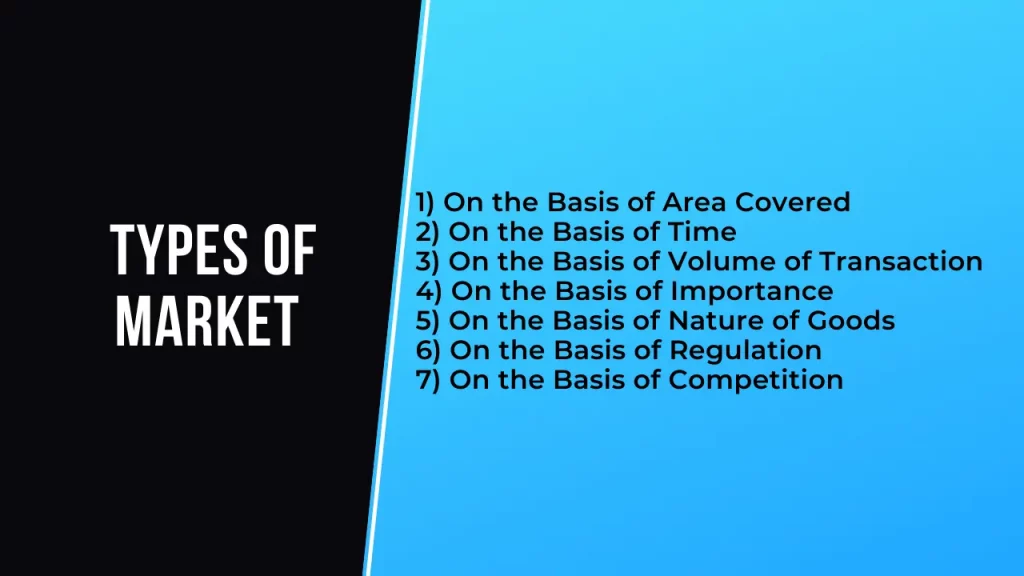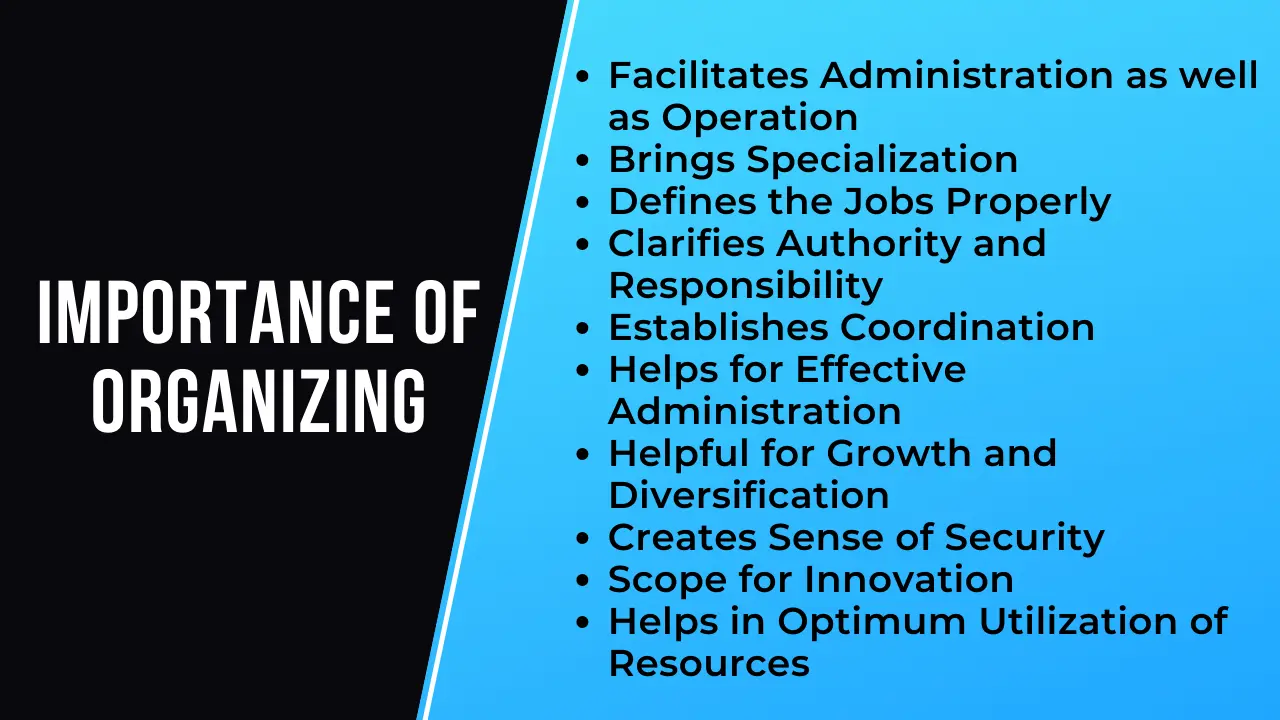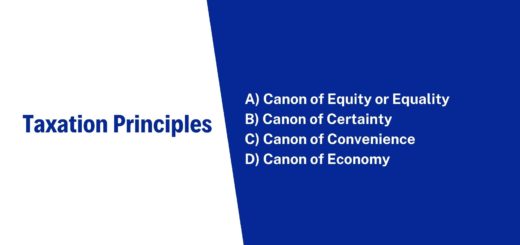Market Types on Different Basis | Free Management Blogs
Table of Contents
Market Types

Meaning of Market?
The term market is derived from the Latin word ‘Mercatus‘, which means ‘to trade’, ‘to trade
merchandise or a place where business is transacted.
In simple words market is a place where two or more parties are involved in buying and selling. These two parties involved in the transactions are called buyers and sellers. The transaction of buying and selling takes place with exchange of money.
- Nature of Principle of Management
- Importance of Principles of Management
- Henri Fayol 14 Principles of Management
- Scientific Principles of Management
- Techniques of Scientific Management
Market Types
‘Markets‘ can be broadly classified into the following categories.
1) On the Basis of Area Covered
a) Local Market
The market for the commodities which are sold within local geographical limits of a region is known as a local market.
b) National Market
The market for the commodities which are sold within the country is known as national market.
c) International Market
The market for the commodities which are produced in one country and sold in other countries is known as international market.
2) On the Basis of Time
a) Very Short Period Market
This type of market has very short time existence viz., for few hours or for a day at a particular time and place. In this type of market perishable goods such as vegetables, fruits, milk products etc. are sold.
b) Short Period Market
This type of market has existence for a short period viz. weekly markets, festival market, market during fairs etc. Perishable or semi-durable goods are sold in this market.
c) Long Period Market
This type of market has existence for long period. In this type of market durable commodities which are generally non-perishable in nature are sold.
3) On the Basis of Volume of Transaction
a) Wholesale Market
In the wholesale market, the activity of buying and selling goods is undertaken in large quantities at cheaper prices. Goods are sold to retailers who then sell them to the consumers. It refers to the market for bulk purchase and sale of goods.
In such a market sellers are known as wholesalers and buyers are known as retailers.
b) Retail Market
Retail market is the market where retailer sells goods directly to the consumer in small quantities.
4) On the Basis of Importance
a) Primary Market
Primary Market refers to the market for primary products such as agricultural and forest products, for example, fruits, vegetables, food grains etc.
b) Secondary Market
Secondary Market refers to the market for semi-processed and semi-manufactured goods. For example yarn market, iron ore market etc.
c) Terminal Market
Terminal Market refers to the market where goods are sold to the ultimate consumers or the users of the product.
5) On the Basis of Nature of Goods
a) Commodity Market
The commodity market refers to the market for goods, materials, or produces viz., consumer goods and industrial goods.
b) Capital Markets
t is a market for borrowing and lending long-term capital required by business enterprises. The financial asset dealt within capital market have long or indefinite maturity period.
6) On the Basis of Regulation
a) Regulated Market
A regulated market refers to the markets regulated by statutory provisions of the country. For example, Commodity Exchanges, Stock Exchanges, Foreign Exchanges
b) Unregulated or Free Market
It refers to the markets which are not controlled by any specific regulations. It generally operates according to forces of demand and supply.
7) On the Basis of Competition
a) Perfect Market
Perfect market is a market where large number of buyers and sellers buy and sell their homogeneous products. These buyers and sellers have perfect knowledge about market conditions and therefore, one single price prevails in the market.
b) Imperfect Market
Imperfect Market refers to a market situation that is characterised by market imperfection such as single seller, maladjustment in demand and supply, imperfect knowledge on the part of buyers or sellers, etc.
Imperfect markets are further divided in the following markets :
1) Monopoly
In monopoly, there is a single producer or seller who controls the market. There are no close substitutes for the product. Monopoly controls the supply and can fix the price.
2) Duopoly
In duopoly, there are two sellers, selling either a homogeneous product or a differentiated product. These two sellers enjoy a monopoly in the sale of the product produced by them.
3) Oligopoly
In oligopoly there are only a few sellers. They may be producing and selling either a homogeneous or a differentiated product.
4) Monopsony
Monopsony refers to a market situation when there is a single buyer of a commodity or service.


